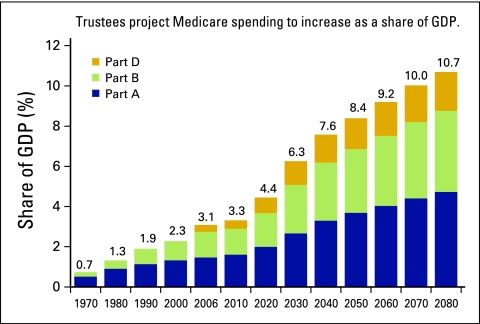With policymakers calling for reforms to ensure Medicare beneficiaries continue to have access to care without bankrupting the Medicare Trust Fund, it is hard to know how changes to the system will affect cancer care delivery. This primer provides oncologists with context for the Medicare reform debates anticipated in the coming months.
Medicare in a Nutshell
In its current iteration, Medicare provides health insurance for Americans age 65 and up, and for individuals of any age with a permanent disability or end-stage renal disease (ESRD). Medicare is made up of four parts:
- Part A provides hospital insurance;
- Part B provides medical insurance;
- Part C comprises Medicare Advantage Plans; and
- Part D provides prescription drug coverage.
Since its signing into law in 1965 by President Lyndon B. Johnson, Medicare has undergone numerous revisions. The Centers for Medicare and Medicaid Services (CMS) offers a timeline of key legislative milestones affecting Medicare and other health programs from 1965 to 2003.
To read the full article, follow this link.

